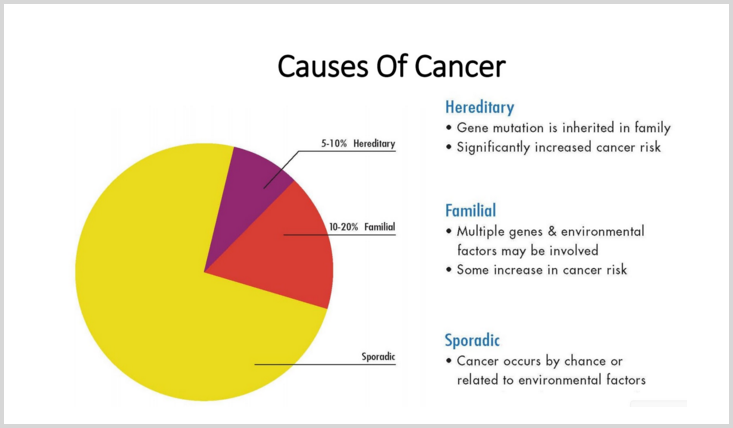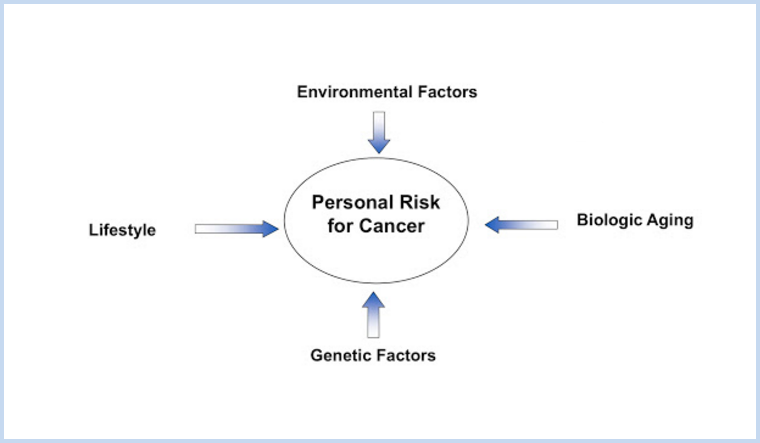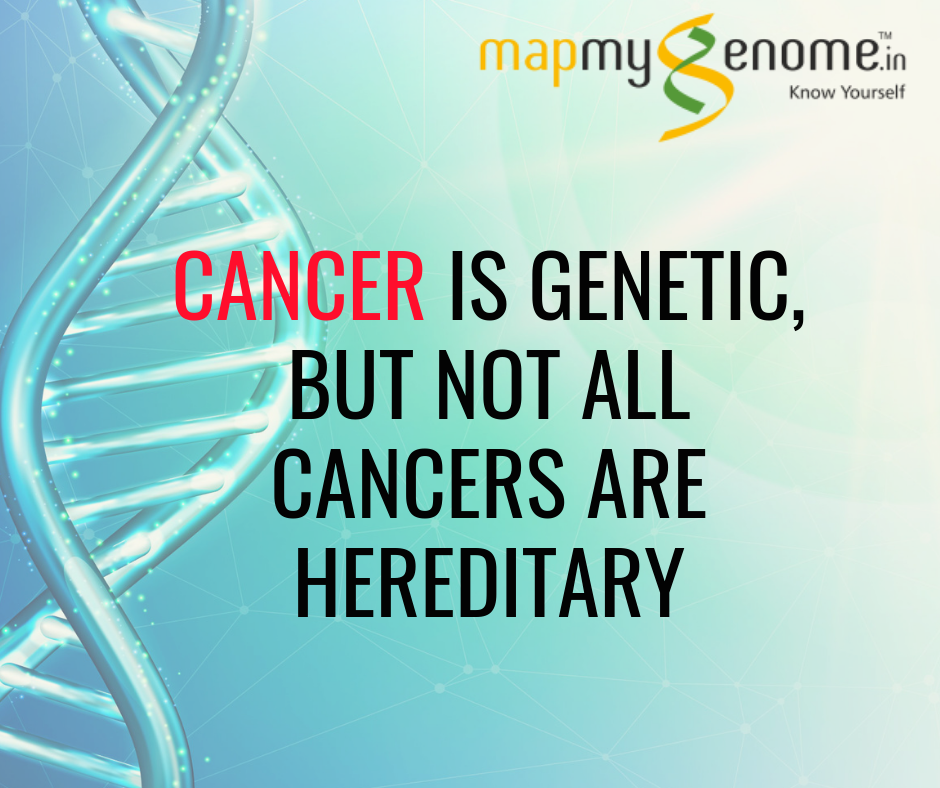DNA OncoScreen: A Comprehensive Cancer Screen
Feb 25, 2019
6236 Views
In 1990, the incidence of cancer was reported to be 63.4 in 100,000. In 2016, the rate of cancer had increased by 28·2%; from 63·4 per 100,000 in to 81·2 per 100,000. We have also seen a rise in the number of cancer-related deaths. The prevalence of lip and oral cavity cancers are higher compared against other countries and a leading cause of death in India.[1]
Hereditary cancers make up to 5-10% of all cancers. About 10-20% of cancers are familial and close to 80% cancers are sporadic in nature.
Hereditary forms of cancer are caused due to a genetic mutation that predisposes individuals to an increased risk for cancer(s). Such genetic mutations can run in families, increasing risk for other family members as well. About 150 genes are known to be associated with hereditary forms of cancer. Families suspected to have a hereditary form of cancer are referred for genetic counseling and offered genetic testing to screen for cancer predisposition genes. Red flags for hereditary cancers include:
- Young age of onset
- Multiple cancers in the family
- Rare forms of cancer (men with breast cancer, women with ovarian cancer)
In some cases, multiple family members may be diagnosed with similar cancer types; however, there is no evidence of identifiable genetic mutation associated with the cancer. It is likely that in such families there may be genetic factors that are associated with an increased risk for cancer.
Hereditary and familial cancers account for only up to 20% of all cancers. Majority of cancers are sporadic. Such cancers occur later in life and in the absence of strong family history of cancers. Many factors affect the risk of cancer including:
- Age
- Lifestyle factors (food, alcohol, smoking, exercise, risk for obesity)
- Environmental factors (exposure to chemicals, pesticides, asbestos, radiation)
- Family history
- Presence of genetic changes such as single nucleotide polymorphisms also known as genetic markers

Inheriting genetic markers associated with cancer alone does not guarantee the risk for cancer. When combined with other risk factors such as lifestyle and dietary factors, it can further increase risk of developing cancer. While we cannot modify genetic markers to reduce risk, non-genetic factors such as lifestyle, diet, and environmental exposures can be modified to reduce risk of developing cancers. In addition, individuals with an increased risk will benefit from regular monitoring which can lead to early detection and treatment intervention.
DNA Onco Screen is a comprehensive cancer screen. It combines genetic risk assessment (<700000 markers across the genome) and biochemical testing to understand the lifetime risks of a wide spectrum of cancer including colon, kidney, breast, prostate cancers. While learning of the presence of genetic markers can help in identifying an increased risk for cancer; screening using biochemical tests and imaging can help in regular monitoring to identify early symptoms of cancer, if any. In addition, DNA Onco Screen includes genetic markers for cancer risk factors such as smoking, alcohol and obesity. Modifying lifestyle risk factors can also help in further reducing risk. Further, experienced board certified genetic counselors provide personalized recommendations for clinical screening and action plan based on personal, family medical history; genetic test report; lifestyle factors such as diet and exercise.  Cancer is common and sporadic. Awareness of lifestyle factors and early screening can help prevent or reduce risk.
Cancer is common and sporadic. Awareness of lifestyle factors and early screening can help prevent or reduce risk.
DNA OncoScreen powered by Mapmygenome is available at Lucid Diagnostics. You can learn more about DNA OncoScreen by calling 1800-123-4577 or writing to care@luciddiagnostics.com.
Works Cited
- Dhillon, P. K., Mathur, P., Nandakumar, A., Fitzmaurice, C., Kumar, G. A., Mehrotra, R., … & Thakur, J. S. (2018). The burden of cancers and their variations across the states of India: the Global Burden of Disease Study 1990–2016. The Lancet Oncology, 19(10), 1289-1306.